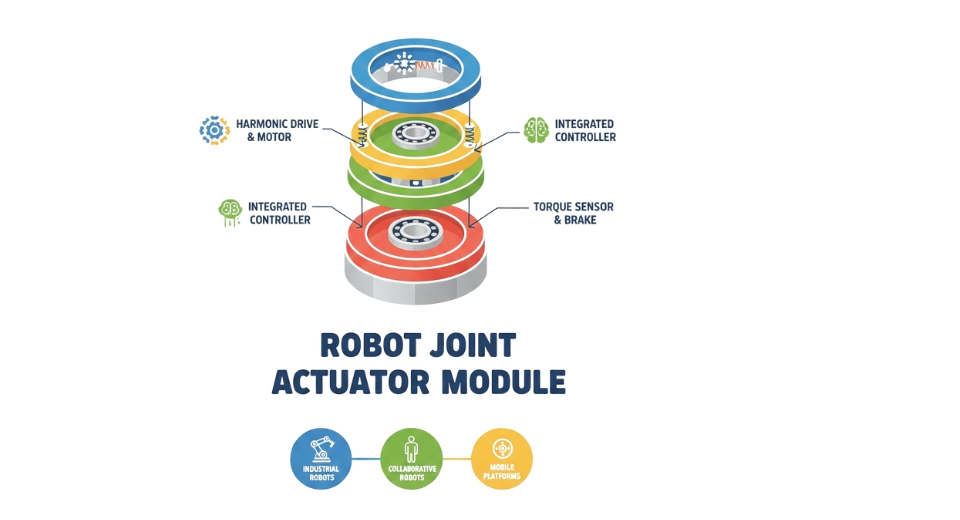MARKET OVERVIEW
The asia pacific outplacement services market will keep on witnessing a shift driven by the changing corporate culture, evolving employment conditions, and increasing need for employee-focused solutions. The market has already transformed from being a welfare scheme for redundancies to a strategic weapon employed by companies to protect their reputation, keep morale levels high among current employees, and facilitate smoother transitions for past employees. But beyond this operational layer is a larger story that will transform the way companies and individuals here use career transition services.
As Asian Pacific companies shift to automations, digitalization, and geo-political changes, the outplacement services sector will broaden its reach to address not only the short-term concerns of displaced workers but also longer-term career resilience. This will go beyond resume development or interview preparation. Rather, it will entail adaptive career planning, alignment of digital skills, and development of emotional resilience. The change will be in line with the way organizations view workforce value not just as labor contributors but as developing assets with transferable abilities to contribute to various industries.
The asia pacific outplacement services market will witness growing partnerships among outplacement companies and ed-tech platforms. Collectively, they will develop programs that bridge knowledge gaps and job seekers to future requirements. Outplacement providers are meant to be more proactive in terms of mapping future careers for the candidates instead of just assisting them in acquiring similar jobs to the ones they lost. Tailored services according to psychometric tests, regional economic conditions, and individualized learning paths will increasingly take over from generic career transition modules.
In cultures such as Japan, South Korea, and Australia, where cultural differences influence attitudes towards work, outplacement services will increasingly adapt to meet singular psychological and social factors. For example, in nations where losing one's job might still be viewed with some social shame, providers will need to address not only re-employment assistance but rebuilding the candidate's self-story and identity. As mental health awareness gains ground, counseling services offered alongside professional development will become more structured and integrated into outplacement packages.
Moreover, Asia Pacific governments will have to take a more proactive role by collaborating with private companies to take the outplacement services to the rural and semi-urban sectors. These measures will make it possible for career transition assistance to go beyond corporate centers and become available to displaced factory workers from manufacturing, miners from mines, and agricultural workers from farms. This will make the market more applicable and more significant than before, with white-collar pink slips.
With the tightening of environmental controls and with declining industries like coal and heavy manufacturing, outplacement services will be an essential part of large-scale workforce restructure. The asia pacific outplacement services market will not only be an indication of corporate reorganization but will affect society's perception in addressing employability and career development. By providing long-term value in reskilling, mental wellbeing, and career redesigning, the industry will be a required partner in managing workforce change in an uncertain but opportunity-driven future.
Asia Pacific Outplacement Services market is estimated to reach $983.9 Million by 2032; growing at a CAGR of 6.2% from 2025 to 2032.

GROWTH FACTORS
The asia pacific outplacement services market is expanding steadily because of a number of significant shifts in the corporate world. Part of the primary reasons behind the growth is the rise in corporate restructuring. As organizations continue to merge or go through changes, many employees are left with the threat of job loss. Organizations are increasingly using outplacement services to help affected employees find employment more quickly and less stressfully. Outplacement is emerging as a major part of how organizations deal with workforce transition because of its advice and support services that provide greater opportunities for an easier transition for employees.
Another primary factor in organizations utilizing outplacement services is that organizations are paying considerable attention to employer branding. When layoffs occur, what they actually do to their outgoing employees is very important. Almost all organizations realize that providing career transition services shows concern and responsibility which protects, and possibly enhances their brand. Employees, customers, and potential employees notice how organizations operate in difficult situations and investing in outplacement services demonstrates that people still matter.
Even with all these positive indicators, there are many challenges standing in the way of the market reaching it full potential. One of the biggest is price. Outplacement services are often costly, making it difficult for smaller firms to utilize them. For a large number of small and medium-sized firms, this expense is a deal-breaker, even if they see the potential advantage. Another obstacle is ignorance. In some regions of the Asia Pacific, particularly in emerging economies, companies just don't know much about outplacement services to even use them. Without greater exposure and understanding, adoption within these regions continues to be sluggish.
There are bright spots for future development. Digital technology is beginning to assume a larger role in the provision of outplacement services. Online systems, combined with AI software, are streamlining these services so that they can provide support easily and efficiently, with clear personalization to benefit a larger group of people. This has made it much easier for more families, including small ones, to obtain help from quality outplacement programs without the huge cost. Additionally, the rise of new sectors and job shifts in nations such as India and China is developing new demand. As these economies expand and their labor forces become more dynamic, the demand for organized support through job transitions will only increase, presenting more opportunities for providers in this sector.
MARKET SEGMENTATION
By Offering
The asia pacific outplacement services market has grown as more and more organizations are focused on individuals' needs in career transition. Outplacement services enables individuals find new opportunities when leaving a company (often due to restructuring, downsizing or retirement). Outplacement services help individuals find new jobs, but also protect the reputation of the employer, and enhance your protection against legal obligations. Outplacement is now viewed as a means by many organizations to provide a professional service to former employees while preserving a good employer reputation.
The product in this market is also further divided into Executive Outplacement Services, worth $185.3 million, Group Outplacement Services, Individual Outplacement Services, and Outplacement Counselling Programs. The Executive Outplacement Services are typically targeted at senior professionals and are provided with additional customized assistance like coaching, resume creation, and networking. They are highly demanded because of the specialized requirements of the executive position. Group Outplacement Services are typically utilized when an organization is dismissing multiple employees simultaneously. They are less expensive and typically include group workshops and overall job search guidance. In contrast, Individual Outplacement Services provide personalized coaching, which renders them ideal for mid-level managers who require custom assistance in identifying their next position. Outplacement Counselling Programs concentrate on the emotional and psychological welfare of impacted employees, assisting them in stress management, rebuilding self-confidence, and remaining motivated while searching for new employment.
Business firms in the asia pacific outplacement services market not just to assist departing employees but also to enhance morale among existing employees. When employees observe their employer showing concern for others during layoffs, it increases trust and decreases fear in the workplace. The human resources teams also gain, as experienced outplacement suppliers take care of most steps in the transition process, saving time and effort. Also, with increasing competitiveness in job markets in the Asia Pacific, outplacement services provide the individuals with useful tools and resources to enhance their prospects, allowing them to find jobs sooner.
In short, the asia pacific outplacement services market is growing steadily with a definite direction of supporting employees across various career levels. From an executive seeking new ventures to a pool of employees who face redundancies, services offered try to navigate them professionally and compassionately. With organizations trying to behave in a more responsible manner, these services will find their place as a compulsory part of employee transition strategies.
By Application
The asia pacific outplacement services market is expanding, as more organizations are realizing the advantages of keeping their employees at this stage of transition. Outplacement services assist departing employees, in connecting them with potential employers through coaching, career strategy, resume assistance, and interview training. This is a win-win situation for the employees and assists companies in sustaining a good reputation, while proving that they are concerned about their staff even during difficult times. Across the Asia Pacific region we have witnessed companies from diverse sectors utilizing outplacement services as part of a workforce change event, whether that is a result of economic fluctuations, workforce realignments or business growth and restructuring. With regard to application, the market is divided based on industry, which consists of BFSI, IT & Telecom, Retail, Media & Entertainment, Government & Public Sector, Manufacturing, Healthcare and Others.
In the BFSI sector, business can undergo workforce transformations frequently as a result of shifting financial laws, like the recent emergence of online banks. Outplacement services make transition smoother when an organization must support changes in the workforce by helping departing employees for their new job. In the IT & Telecom sector, technology is constantly evolving and changing, but the largest billing firms tend to utilize outplacement services to assist employees downsizing or undergoing a merger. Outplacement services are commonly employed by retail companies because they experience employee turnover when adjusting to new consumer preferences and moving progressively more toward an online shopping experience.
Project labor in the Media & Entertainment industry produces plot work. Outplacement support in this industry during projects may help a professional secure additional jobs more quickly when a project ends. In Government & Public Sector, outplacement services are used to manage job transference during changes with policy changes or restructures. Manufacturing companies must take into account automation and/or global supply chain, which can move the location of jobs and/or reduce positions. Outplacement services can be utilized to lessen the impact of downsizing on impacted employees. In the Healthcare realm, outplacement services are typically used during organizational restructure, mergers or systems upgrades that could impact certain employees.
As a general rule, outplacement services are embraced as a growing option for businesses to responsibly transition change. They provide employees with opportunities to find new employment in a competitive labour market, and allow the company to transition employees in a humane manner. When used as a service, outplacement services assist more businesses across a range of sectors in Asia Pacific to recognize the longer timeline across the impacts of the service, "as an emerging demand across the region". This reflects a more responsible and humanised way to almost always do business for both companies and workers with the knowledge and security they are treated professionally.

By Region
The asia pacific outplacement services market is experiencing rapid growth due to growing demand for career transition services in a number of countries. Companies have begun to realize the value of assisting their leaving employees with finding alternative sustainable employment. This isn't just being charitable to your leaving employees - it helps to build the company's reputation, as well as maintaining ineffective morale for those employees that remain. Businesses here are finding that providing outplacement services can be a game-changer, both internally and externally.
From Asia Pacific, economic transitions, digital disruption, and changes in workplace dynamics translate to rising job losses, particularly during mergers, restructuring, or downsizing. These have brought outplacement services into increased demand. When workers are laid off they are often lost as to what to do next and these services offer what individuals need to get on with their lives. Outplacement providers offer career guidance, help in writing resumes, interviewing for jobs and provides job search assistance which can help lessen the anxiety and worry in times of hardship.
With the growth of the employment market and high levels of organizational change in China and India are forcing more companies to provide these services. In Taiwan and Hong Kong, professionals are concerned with relocating easily and keeping their careers intact in competitive economies. Japan and Korea are experiencing a cultural transformation at the workplace, with greater receptivity to career mobility, and outplacement services are becoming more applicable. Australia and New Zealand are also among the change, with outplacement plans becoming increasingly common as an integral component of human resources strategies. Southeast Asia is also experiencing growing demand, particularly in nations with expanding workforces and businesses that are adjusting to shifting economic circumstances. The remainder of Asia Pacific is close behind, with additional organizations increasingly realizing the long-term value of providing exit support in a structured manner.
In total, the asia pacific outplacement services market is expanding gradually as businesses increasingly realize the benefits of enabling people to deal with career change. This strategy not only benefits people but also enhances corporate culture and reputation. As companies continue to adapt to new work environments and changing economic trends, the demand for outplacement will continue to grow. The necessity to treat departing employees fairly, combined with the need to foster a positive work environment, will continue to propel this market throughout the entire region.
By Southeast Asia
asia pacific outplacement services market, with a Southeast Asia emphasis, accounts for several important countries: Indonesia, Malaysia, Singapore, Thailand and the Rest of Southeast Asia. Each country does contribute to the overall growth and demand for outplacement services in the market. The outplacement is meant to assist employees who are leaving a business organization to find new employment or career pathways and has increased in importance as businesses respond to changes in economic conditions and changes in labor.
In a large, emerging economy country like Indonesia, Indonesia undoubtedly is a large contributor of market demand for outplacement services. Indonesian firms are restructuring or right-sizing, and thus there is a growing need for support services to help the employees find new employment. These types of services can include career planning and coaching, resume preparation, interview preparation, and job placement, all designed to help individuals make career progress with confidence.
In Malaysia we can see again a constant demand for outplacement services because of the diversified economic base and amount of multi-national companies. Companies in Malaysia see value in assisting employees that are leaving or exiting the organization as not only does it benefit the individuals involved, but it benefits the company in terms of future image and maintaining good relationships.
Singapore is a prominent outplacement services hub in Southeast Asia. With its sophisticated economy and highly educated labor pool, the outplacement industry here is more mature and competitive. Singaporean companies tend to invest heavily in extensive outplacement packages to make sure that leaving staff are given top-notch support. Such outplacement packages may comprise coaching, training workshops, and job networking facilities, which enable employees to find new employment opportunities expeditiously in a dynamic job market.
Thailand serves the market by supporting local businesses as well as foreign corporations working within its territory. Outplacement services in Thailand are changing as the country's labor market becomes increasingly dynamic. The workers gain from individualized advice and resources that enable them to gain insight into the employment market and transition into new positions properly.
The Rest of Southeast Asia, comprising smaller nations and newer economies, contributes to the overall growth in outplacement services as well. Although the demand might be lower than in larger nations, businesses in this region are increasingly embracing these services as they understand the benefits of helping employees navigate career changes.
Generally, the asia pacific outplacement services market in Southeast Asia is progressively growing, fueled by economic transformation and an enhanced emphasis on employee well-being during job change. Each nation presents special opportunities and challenges, yet as a whole they represent a robust market that will keep on evolving with an increasing number of organizations putting investment into assisting their people to progress.
|
Forecast Period |
2025-2032 |
|
Market Size in 2025 |
$667.0 million |
|
Market Size by 2032 |
$983.9 Million |
|
Growth Rate from 2025 to 2032 |
6.2% |
|
Base Year |
2024 |
COMPETITIVE PLAYERS
The asia pacific outplacement services market is registering consistent growth with increasing companies prioritizing supporting employees through workforce transitions. Outplacement services assist individuals in gaining new employment upon lay-offs or termination of work. Outplacement services provide career support, resume preparation, interview preparation, and job placement services. They are particularly beneficial during economic shifts, mergers, or restructuring. Employers today realize that providing such support not only benefits former workers but also safeguards their brand reputation and maintains higher morale among those who stay on.
Across the Asia Pacific, there is growing demand for outplacement services because of increased job insecurity, automation, and evolving workplaces. As industries change, businesses are looking at professional service firms to better navigate these changes. In this way, they facilitate smoother departure and enable long-term success of impacted individuals. Such practice is on the rise in nations such as India, China, Japan, Australia, and Singapore, where companies are experiencing local and international changes. Providing formal job transition assistance is becoming responsible employer practice.
There are a number of reputable firms operating within this sector and who significantly influence the marketplace. Major players are ABC Consultants, Career Partners International (CPI), Career Star Group, Challenger, Gray & Christmas, Inc., Cornerstone India, Gi Group S.p.A., Hays Plc, Hudson Asia-Pacific Inc., Lee Hecht Harrison (LHH), Mercer LLC, Page Outsourcing, Prima Group, Randstad RiseSmart, ManpowerGroup Talent Solutions, and Right Management. These companies have years of experience under their belts and provide customized solutions for the needs of various companies in various industries.
Their work is not just about the next job. They also aim to assist people in learning to recognize their strengths, enhance their abilities, and be confident in a competitive employment market. It is this people-focused strategy that differentiates outplacement from mere job search websites. The more individuals become aware of the emotional and professional issues associated with job loss, the greater the worth of outplacement.
Overall, the asia pacific outplacement services market is gaining prominence as organizations seek responsible and caring means of addressing workforce transitions. With robust service providers and increasing awareness, the market can be expected to continue to grow, providing more opportunities for individuals and organizations in general.
Asia Pacific Outplacement Services Market Key Segments:
By Offering
- Executive Outplacement Services
- Group Outplacement Services
- Individual Outplacement Services
- Outplacement Counselling Programs
By Application
- BFSI
- IT & Telecom
- Retail
- Media & Entertainment
- Government & Public Sector
- Manufacturing
- Healthcare
- Others
By Region
- China
- Hong Kong
- India
- Japan
- Korea
- Taiwan
- Australia & New Zealand
- Southeast Asia
- Rest of Asia Pacific
By Southeast Asia
- Indonesia
- Malaysia
- Singapore
- Thailand
- Rest of Southeast Asia
Key Asia Pacific Outplacement Services Industry Players
- ABC Consultants
- Career Partners International (CPI)
- Career Star Group
- Challenger, Gray & Christmas, Inc.
- Cornerstone India
- Gi Group S.p.A.
- Hays Plc
- Hudson Asia-Pacific Inc.
- Lee Hecht Harrison (LHH)
- Mercer LLC
- Page Outsourcing
- Prima Group
- Randstad RiseSmart
- ManpowerGroup Talent Solutions
- Right Management
WHAT REPORT PROVIDES
- Full in-depth analysis of the parent Industry
- Important changes in market and its dynamics
- Segmentation details of the market
- Former, on-going, and projected market analysis in terms of volume and value
- Assessment of niche industry developments
- Market share analysis
- Key strategies of major players
- Emerging segments and regional growth potential








 US: +1 3023308252
US: +1 3023308252






